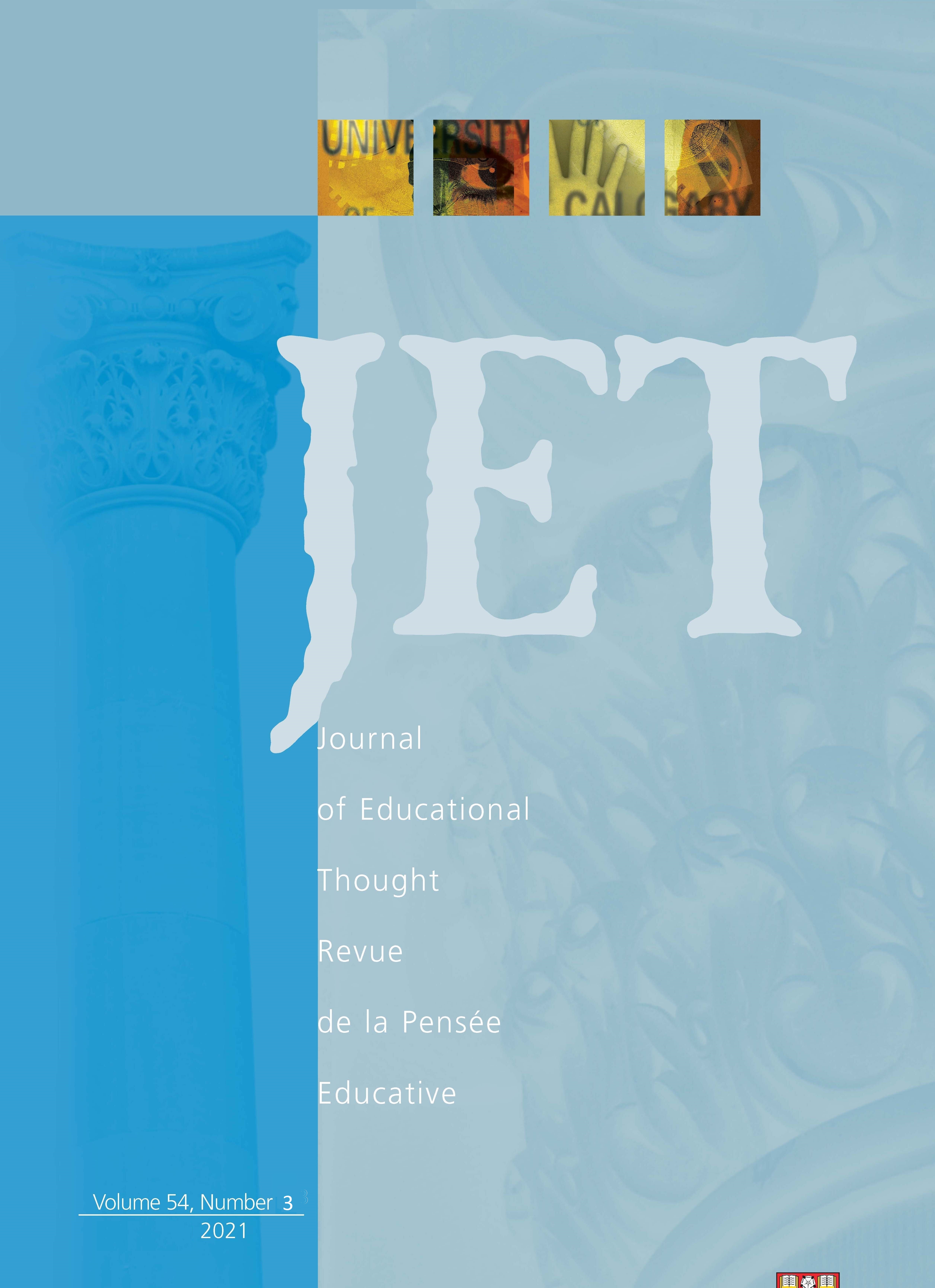Inquiry and Uncertainty of Thinking: Education with Technology
DOI:
https://doi.org/10.55016/ojs/jet.v54i3.74686Abstract
Abstract: This paper develops an argument regarding thinking, inquiry, uncertainty and subject in working with technology. This development serves the analysis of learning with technology and discusses the educational consequences of working with technology. Doing that, the paper discusses the influence of two main features of technological cognitive tools on the learner’s inquiry: interactivity and dynamicity. It argues that interactivity and dynamicity of the technological cognitive tools support the learner in his or her interaction processes during inquiry to investigate uncertain situations. It also argues that technological cognitive tools can support the imagination processes of learners that facilitate the development of their knowledge about the subject matter, besides facilitating their problem-solving processes. These tools can enrich the interactions between the learners during their engagement with the subject matter. It is argued that technological cognitive tools can support the subject in dealing with the uncertainty in learning and thus enriches her or his experimenting identity. This support could be strengthened by taking care of the tool’s design.
Downloads
Published
Issue
Section
License
The Journal of Educational Thought retains first publication rights for all articles. The Journal grants reproduction rights for noncommercial educational purposes with the provision that full acknowledgement of the work’s source be noted on each copy. The Journal will redirect to the appropriate authors any inquiries for further commercial publication of individual articles. All authors wishing to publish in JET will be asked to fill in and sign a Consent to Publish and Transfer of Copyright agreement.
Authors must affirm that any submission to JET has not been and will not be published or submitted elsewhere while under considration by JET.

